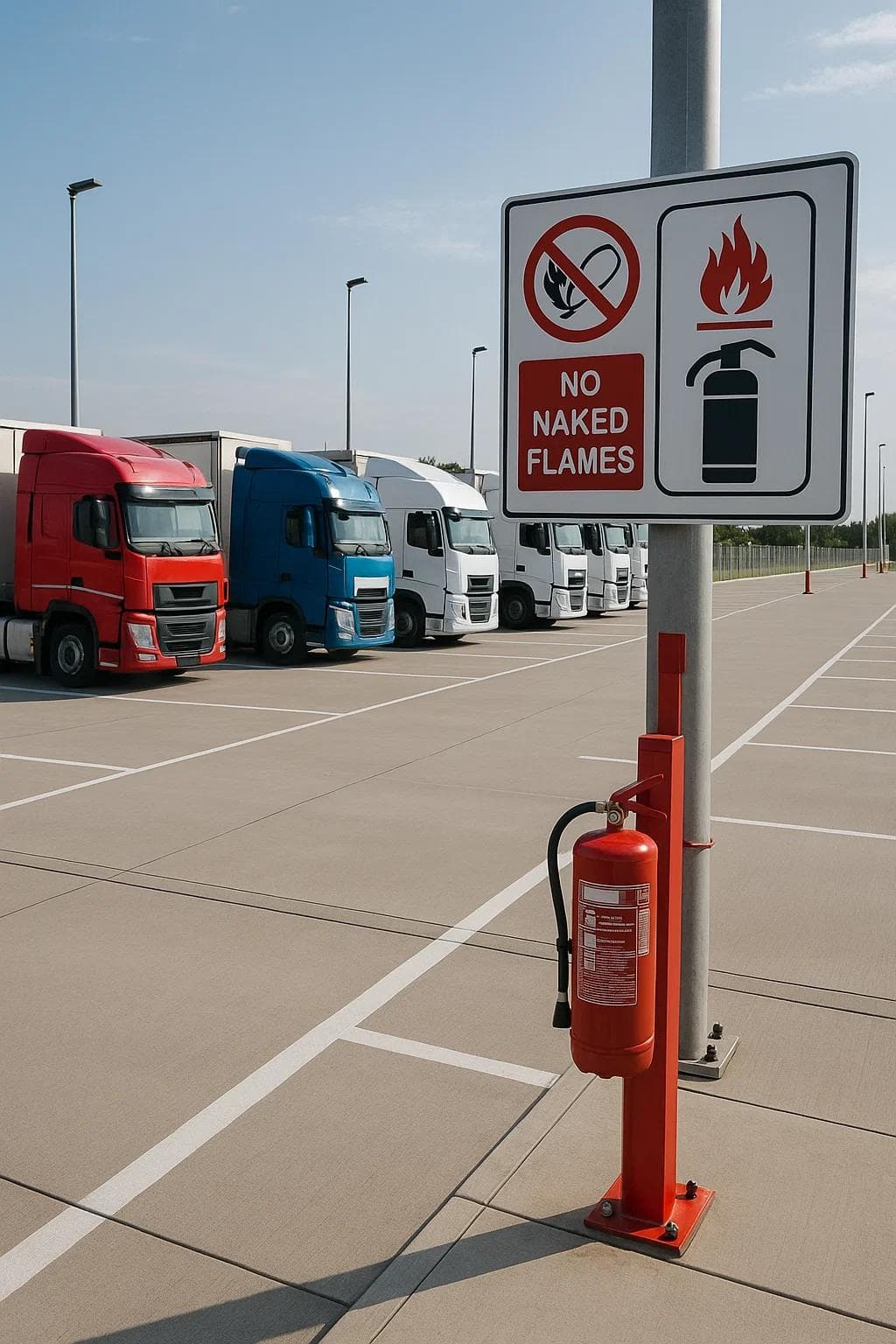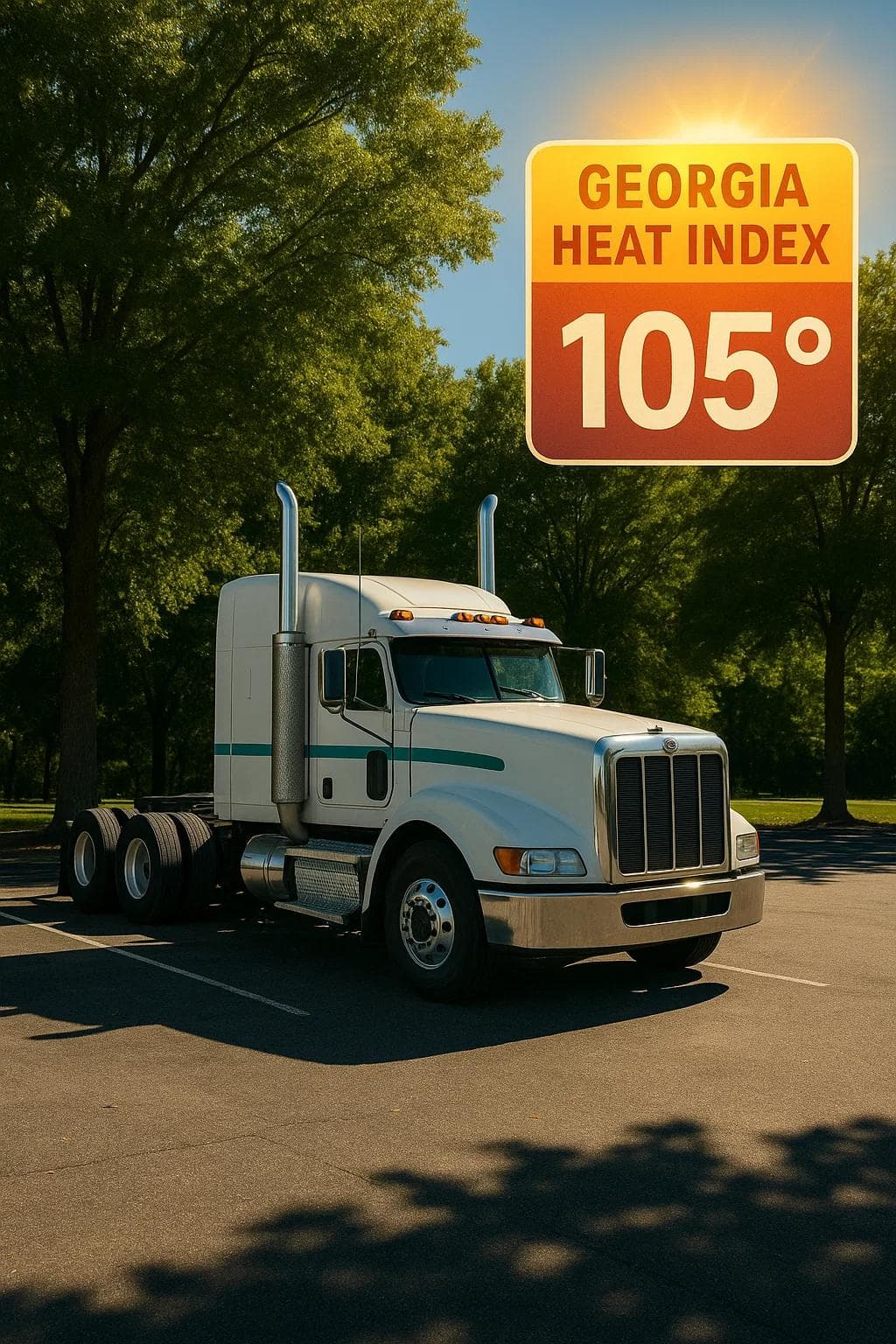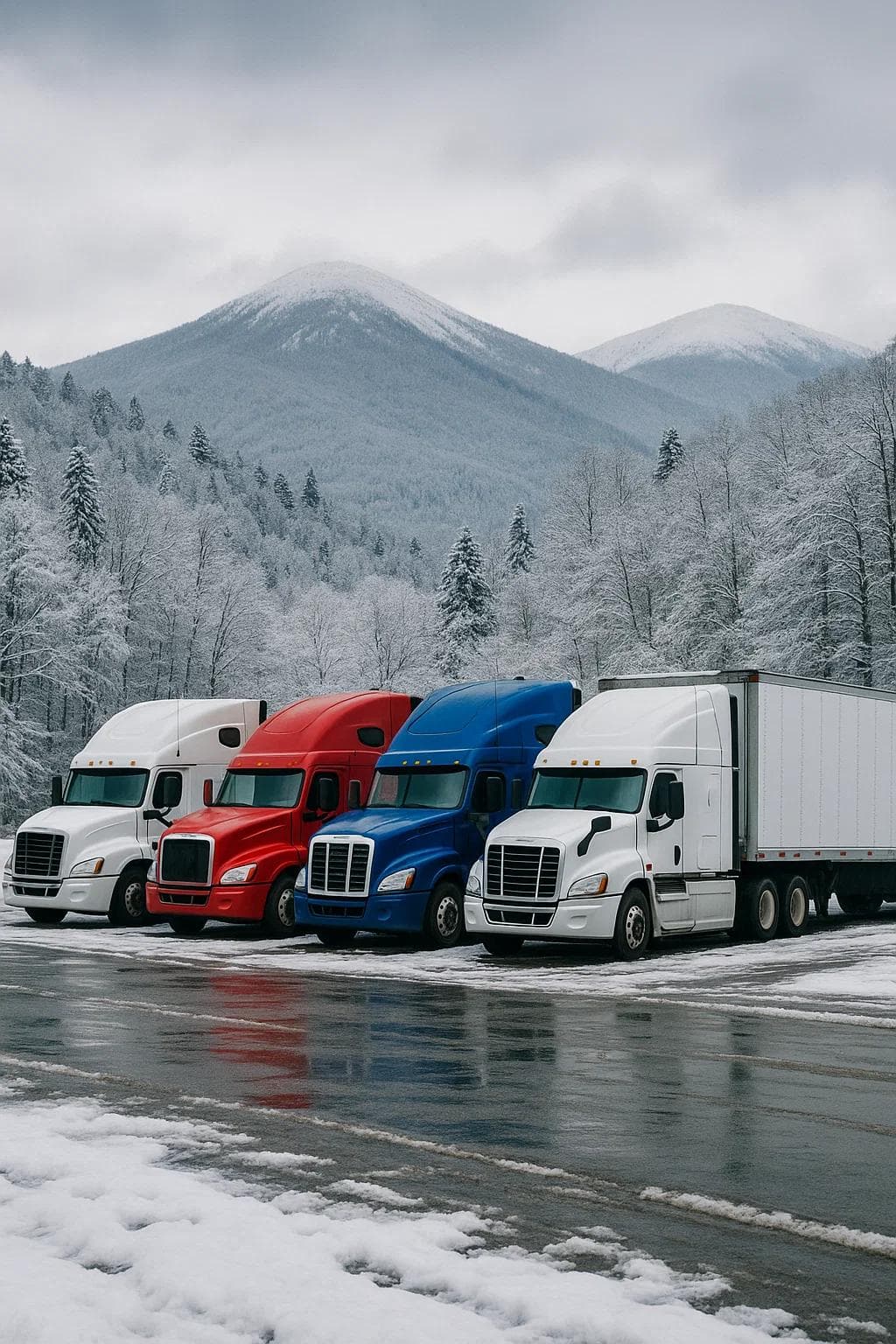
Introduction
Every year, over 1,000 truck fires occur on U.S. highways, with many incidents beginning or spreading in parking lots. These fires not only endanger lives but also cost fleets and drivers an average of $150,000+ per incident in damages, insurance impacts, and downtime. Many of these fires are preventable—making proper parking practices critical for safety and career longevity.
Recent high-profile incidents have pushed regulators and fleets to focus on fire safety. Advances in monitoring technology and stronger facility protocols are helping professional drivers reduce risks. Superior Truck Parking has been at the forefront, designing facilities and implementing policies that protect drivers, vehicles, and cargo from fire hazards.
Understanding Truck Fire Risks
Common Fire Causes
- Tire fires (25%): Often caused by underinflation, brake drag, or bearing failure.
- Electrical issues (20%): Wiring defects, battery failures, or accessory overloads.
- Engine compartment (18%): Oil leaks, turbo failures, or exhaust system faults.
- Cargo-related (15%): Hazmat loads, shifting cargo, or chemical reactions.
- External factors (12%): Arson, nearby fires, or spilled fuel sources.
Parking-Specific Risks
- Extended idling and hot brake issues.
- Auxiliary Power Unit (APU) malfunctions.
- Refrigeration unit fires or battery charging faults.
- Debris accumulation or vandalism threats in lots.
Environmental Factors
- High temperatures, low humidity, and windy conditions.
- Proximity to combustible ground materials or vegetation.
- Exposure to industrial chemicals or nearby hazards.
Fire Prevention Strategies
Pre-Trip Inspections
Consistent inspections reduce fire hazards before parking. Check tire pressure, brake adjustment, electrical connections, fluid leaks, APU condition, and exhaust integrity. Document findings thoroughly to track patterns, verify repairs, and satisfy insurance requirements.
Parking Best Practices
- Allow cool-down periods after driving.
- Select paved or fire-resistant surfaces.
- Maintain safe spacing and consider wind direction.
- Keep parking areas free of debris and shut down unnecessary equipment.
- Park in facilities with emergency access, ventilation, and clear escape routes.
Technology Solutions
Tools like tire pressure monitors, temperature sensors, automatic suppression systems, and early warning platforms provide real-time alerts. Integrated camera and monitoring systems enhance prevention and response capabilities.
Read More Parking Safety TipsSuperior Truck Parking Fire Safety
Superior Truck Parking designs its facilities to minimize fire risk. With wide space separation, debris-free grounds, and regular inspections, the company provides a secure environment for drivers and fleets.
- Fire-resistant construction materials and clear emergency lanes.
- Strategically placed hydrants and water access points.
- Regular staff training, maintenance protocols, and quick response coordination with fire departments.
- Zero fire spread incidents thanks to infrastructure planning and continuous improvement.
Emergency Response Procedures
Immediate Actions
- Ensure personal safety first.
- Activate the truck alarm and call 911.
- Alert facility staff and attempt suppression only if safe.
- Evacuate and account for all people nearby.
Decide whether to fight or flee based on fire size, hazmat involvement, and available equipment.
Fire Suppression Basics
- Use the PASS technique with a properly sized extinguisher.
- Keep a clear escape route and monitor for rekindles.
- Never fight large or hazmat fires without professional help.
Post-Incident Actions
- Verify safety and file official reports.
- Notify insurance and preserve evidence for investigation.
- Coordinate repairs and update prevention plans.
Equipment and Technology
Fire Suppression Systems
Engine bay suppression systems ($1,500–$3,000), tire monitors ($500–$1,000), and cab or trailer systems provide strong ROI by preventing costly losses.
Detection Technology
Smoke detectors, heat sensors, gas monitors, and camera analytics enable early alerts. Wireless monitoring and automation help fleets respond quickly.
Personal Safety Equipment
- 5 lb ABC fire extinguisher, fire blanket, emergency escape tool.
- First aid kit, protective gear, and reliable communication devices.
Insurance and Liability
Understanding coverage limits, liability factors, and prevention discounts is critical. Proper inspection records and safety programs can lower premiums and reduce claim complications.
- Weigh prevention costs against potential losses and downtime.
- Maintain compliance with industry standards and Georgia fire regulations.
Training and Awareness
Drivers should master fire behavior basics, prevention methods, emergency steps, and equipment use. Resources include online courses, certification programs, and industry seminars. Building a safety-first culture with peer accountability and continuous improvement ensures long-term protection.
Frequently Asked Questions
What size fire extinguisher do I need? At least a 5 lb ABC unit.
How often should I check fire equipment? Before every trip and monthly in detail.
Can I move a truck that's on fire? Only if safe and without endangering others.
What are signs of electrical fire risk? Burning smells, flickering lights, hot wires.
How does Superior prevent fire spread? Wide spacing, hydrants, inspections, and fast response.
Should I disconnect batteries when parked? Yes, if parked for extended periods.
What's a safe idling duration? Limit to short periods, avoid extended idle.
Are fire suppression systems worth it? Yes, for ROI and life safety.
How do I report fire hazards? Contact facility staff or local fire authorities.
What training is recommended? Company programs, online safety courses, and certification.
Get Fire Safety SupportConclusion
Truck fire safety starts with prevention, smart parking, and reliable equipment. Superior Truck Parking's safety-first approach provides drivers with confidence and protection. Whether you're an independent operator or managing a fleet, adopting these strategies preserves lives, equipment, and careers.
Stay informed, stay prepared, and choose parking facilities that prioritize safety.
Secure Your Fire-Safe Parking TodayReady to Reserve Your Truck Parking Spot?
Don't wait for secure parking. Reserve your spot at Superior Truck Parking today and enjoy peace of mind with our 24/7 secured facility.
Professional Parking Management: Our facility uses the therighut.com platform for seamless booking and management. This industry-leading software ensures smooth operations and the best experience for our customers.
About Superior Truck Parking
Discover updates, route guides, and driver resources from Superior Truck Parking in Calhoun, GA. Learn about secure parking solutions along I-75 designed for safety, convenience, and compliance.
Related Posts

Tornado Safety for Truckers: Emergency Parking Strategies (2025)
A complete tornado safety guide for truckers in Georgia. Learn emergency parking strategies, storm alerts, and how Superior Truck Parking keeps drivers safe.

Summer Heat Survival: Truck Parking in Georgia's Hot Season (2025)
Stay cool and safe during Georgia's 95°F+ summers. Learn expert truck parking, heat safety tips, and Superior Truck Parking advantages to beat the heat.

Winter Truck Parking in North Georgia: Preparation Guide (2025)
Prepare your truck for North Georgia’s harsh winters. Learn parking strategies, ice storm safety, and how Superior Truck Parking keeps drivers secure all season.
